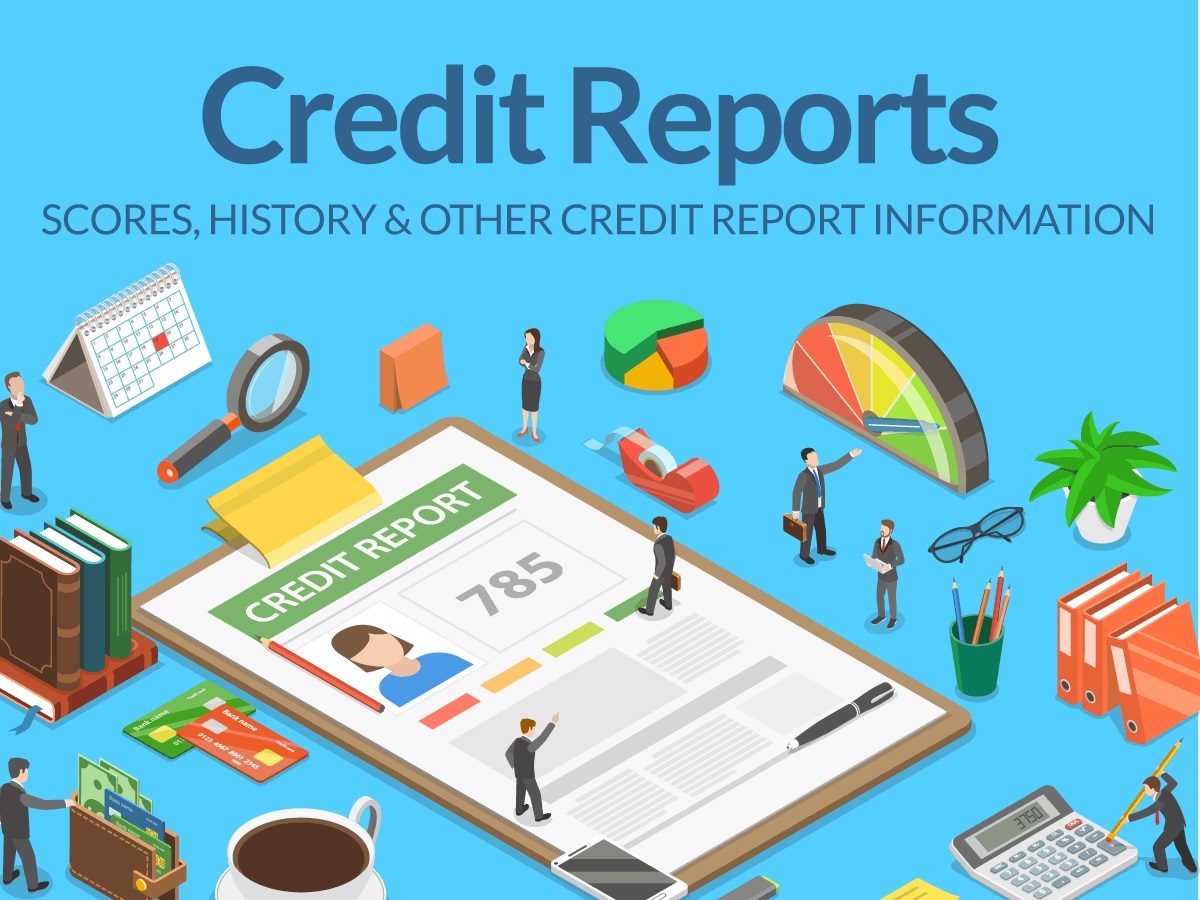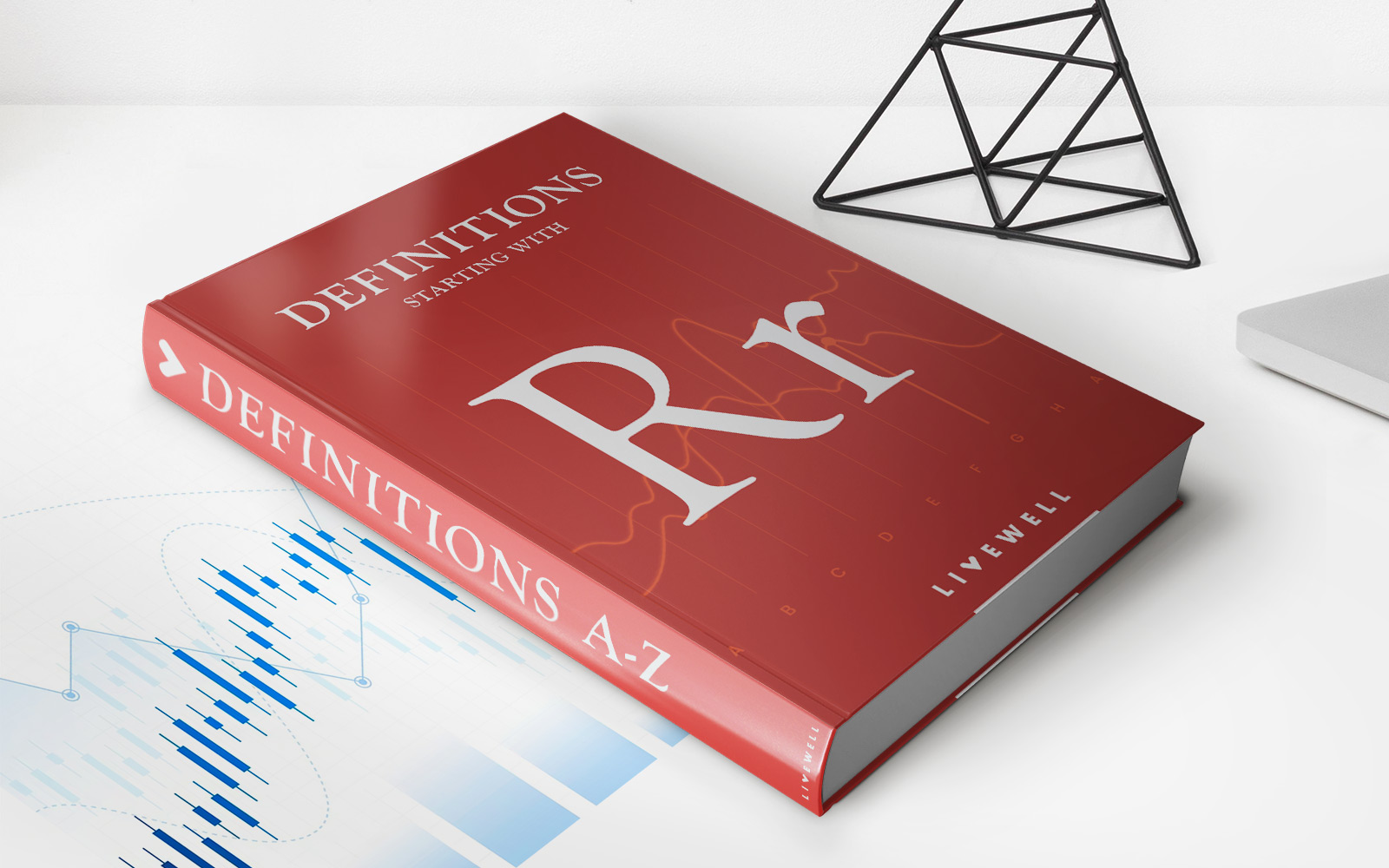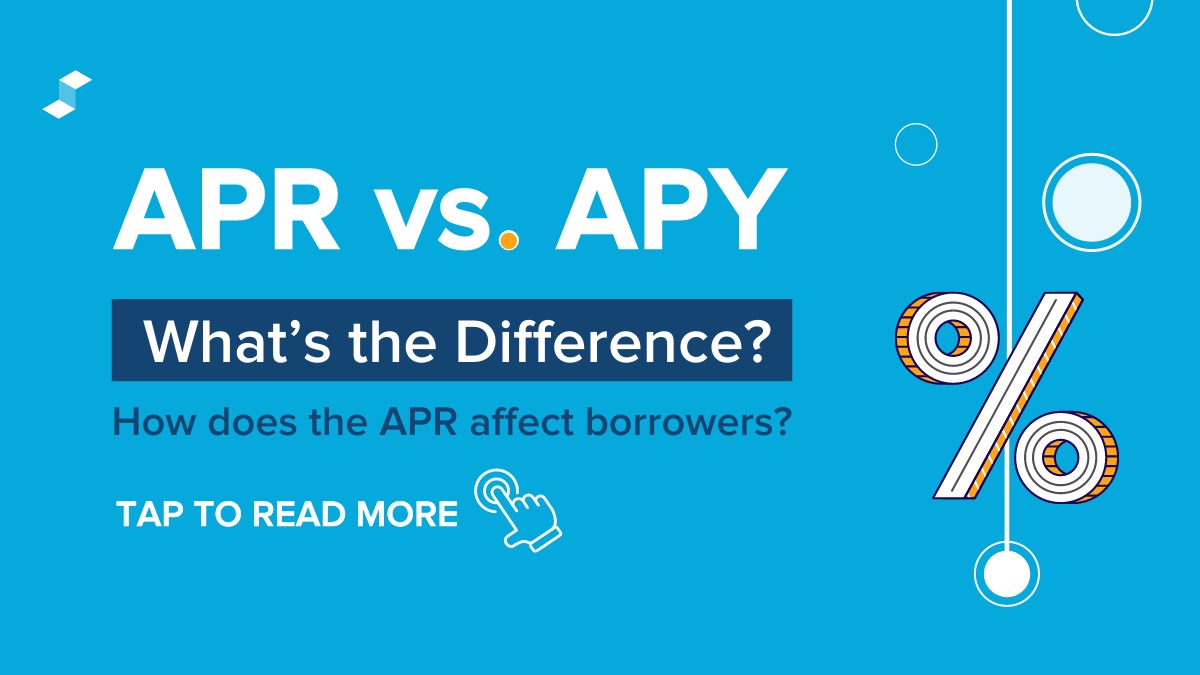

Finance
When Is Credit Reported
Modified: March 6, 2024
Discover when credit is reported and how it impacts your finance. Stay informed to make wise financial decisions
(Many of the links in this article redirect to a specific reviewed product. Your purchase of these products through affiliate links helps to generate commission for LiveWell, at no extra cost. Learn more)
Table of Contents
Introduction
When it comes to managing your finances, having a good credit score is essential. It not only affects your ability to secure loans or credit cards but also plays a crucial role in determining the interest rates you will be offered. But have you ever wondered when your credit activity is reported to the credit bureaus? Understanding the timing and frequency of credit reporting can help you make informed decisions and take control of your financial health.
Credit reporting refers to the process by which your credit information is shared with the major credit bureaus, such as Experian, TransUnion, and Equifax. These bureaus collect and compile data on your credit history, including your payment history, outstanding debts, and credit utilization. This information is used to calculate your credit score, which lenders use to assess your creditworthiness.
Several factors can affect when your credit activity is reported. Understanding these factors can help you plan your financial activities strategically and ensure that your credit reports accurately reflect your financial behavior. In this article, we will explore the different factors that influence credit reporting, examine the frequency and timing of credit reporting, and understand the impact it can have on your credit score.
Understanding Credit Reporting
Credit reporting is the process of sharing your credit-related information with credit bureaus, who then compile this information into credit reports. These reports contain details about your credit history, including your payment history, outstanding debts, credit utilization, and any public records such as bankruptcies or tax liens. Creditors, lenders, and other financial institutions use these reports to assess your creditworthiness and determine whether they should extend credit to you.
The three main credit bureaus, Experian, TransUnion, and Equifax, are responsible for gathering and maintaining this information. They receive updates from various sources, including banks, credit card companies, and lenders, regarding consumers’ credit activities. These updates are then used to update individuals’ credit reports. It’s important to note that credit bureaus do not initiate credit reporting. They rely on receiving information from these sources to update credit reports.
When a lender or creditor reports your credit information to the credit bureaus, they typically include details such as the account type, account balance, payment history, and any late or missed payments. If you have multiple credit accounts, such as credit cards, loans, or mortgages, each of these accounts will be reported individually in your credit report.
It’s important to remember that not all credit activity gets reported to the credit bureaus. For example, not all landlords report rental payment history, and utility companies may not always report your monthly utility payments. On the other hand, banks and credit card issuers are usually required to report your credit activity. Therefore, it’s essential to understand which financial activities are reported and how they can impact your credit score.
Factors Affecting Credit Reporting
Several factors can influence when and how your credit activity is reported to the credit bureaus. Understanding these factors is crucial for managing your credit effectively. Here are some key factors that can affect credit reporting:
- Type of Credit Account: Different types of credit accounts may have varying reporting frequencies. For example, credit card activity is often reported monthly, while mortgage or loan payments may be reported less frequently.
- Lender Policies: Each lender may have their own reporting policies. Some lenders may report your credit activity to all three major credit bureaus, while others may only report to one or two. This can result in variations in your credit reports across bureaus.
- Payment Frequency: When it comes to credit cards, your payment frequency can impact credit reporting. If you make multiple payments throughout the month, each payment may be reported individually. However, if you make a single monthly payment, the credit activity for that billing cycle will be reported as a lump sum.
- Date of Billing Cycle: The date when your billing cycle ends can determine when your credit card activity is reported. If your billing cycle ends on the 15th of the month, your credit card activity will typically be reported shortly after that date.
- Reporting Date: Each lender may have a specific reporting date when they send credit information to the bureaus. This date can vary from lender to lender and can impact how frequently your credit reports are updated.
It’s important to note that late or missed payments can have a significant impact on your credit score. These negative events are typically reported to the credit bureaus and can remain on your credit report for several years. On the other hand, positive credit activities, such as consistently making on-time payments or paying off debts, can help improve your credit score over time.
Additionally, any changes or updates to your credit information, such as opening a new credit account, closing an account, or increasing your credit limit, may also be reported to the credit bureaus. These changes can affect your credit utilization ratio and may impact your credit score.
By understanding these factors, you can better manage your credit activities and ensure that your credit reports accurately reflect your financial behavior. It’s important to review your credit reports regularly to identify any errors or discrepancies and take appropriate actions to rectify them.
Frequency of Credit Reporting
The frequency of credit reporting refers to how often your credit activity is updated and reported to the credit bureaus. It is important to understand the reporting frequency to have an accurate understanding of your credit health. While the specific reporting frequency may vary based on the type of credit account and lender policies, here are some general guidelines:
- Credit Cards: Credit card activity is typically reported monthly. This means that the information regarding your credit card payments, balances, and credit utilization will usually be updated on a monthly basis.
- Loans: Loan payments, including personal loans, car loans, and mortgages, are also reported to credit bureaus. However, the frequency of reporting may vary. Some lenders report loan payments monthly, while others may report less frequently, such as every quarter or even annually.
- Other Credit Accounts: Other types of credit accounts, such as retail store credit cards or lines of credit, may also be reported to the credit bureaus. The reporting frequency for these accounts can vary, but it is typically on a monthly basis.
It’s important to note that the reporting frequency refers to when the information is updated in your credit report, not when it is submitted. For example, if your credit card payment is due on the 15th of the month and you make the payment on time, it may take a few days for the payment to be reflected in your credit report.
Keeping track of the reporting frequency can help you plan your credit activities strategically. For example, if you are planning to apply for a loan and want to improve your credit score, you can make sure your on-time payments and credit utilization are reflected in your credit report before submitting your application.
Remember that not all lenders report on the same schedule, and it is possible for discrepancies to exist between your credit reports from different bureaus. Therefore, it is essential to review all three of your credit reports regularly to ensure accuracy and resolve any discrepancies that may negatively impact your credit standing.
Understanding the reporting frequency can also help you monitor your credit closely. If you notice unusual activity or discrepancies in your credit report, such as accounts that you did not open or payments that were not properly recorded, you can take immediate action to rectify the situation and protect your credit score.
By staying informed about the frequency of credit reporting, you can take control of your credit health and make informed financial decisions to maintain or improve your credit standing. Remember, responsible credit management and regular monitoring of your credit reports are key to building and maintaining a strong credit profile.
Timing of Credit Reporting
The timing of credit reporting refers to when your credit activity is reported to the credit bureaus. It is important to understand this timing to ensure that your credit reports accurately reflect your financial behavior. While the exact timing may vary depending on the individual creditor or lender, here are some general guidelines:
- Credit Card Activity: Credit card activity is typically reported shortly after your billing cycle ends. For example, if your billing cycle ends on the 15th of the month, your credit card activity for that cycle will usually be reported shortly after that date. It’s important to note that this reporting timing can vary between different credit card issuers.
- Loan Payments: Loan payments, such as mortgage payments or personal loan payments, are usually reported to credit bureaus on a monthly basis. The specific timing of the reporting may depend on the lender, but it generally occurs shortly after your payment due date.
- Credit Utilization: Credit utilization refers to the percentage of your available credit that you are currently using. This is a significant factor in determining your credit score. Most lenders report your credit utilization to the credit bureaus once a month, typically on the same date as your credit card statement is generated.
- Public Records: Public records such as bankruptcies, tax liens, or judgments can have a severe impact on your credit scores. When these public records are filed, they are usually reported to the credit bureaus promptly and can remain on your credit report for several years.
- Credit Inquiries: When you apply for credit, the lender or creditor will usually check your credit history by requesting a credit inquiry. These inquiries can be either hard inquiries or soft inquiries, depending on the purpose. Hard inquiries, such as those made when applying for a loan or credit card, can temporarily lower your credit score. It’s important to note that hard inquiries are typically reported to the credit bureaus shortly after they occur.
Keep in mind that while these are general guidelines, the timing of credit reporting can vary depending on the individual creditor or lender. It’s important to review the terms and conditions of your specific credit accounts and communicate with your lenders if you have any questions about their reporting schedules.
Monitoring the timing of credit reporting is crucial for accurate credit management. By understanding when your credit activity will be reported, you can plan your financial activities strategically. For example, if you are looking to improve your credit score, you can make sure to pay your bills on time and keep your credit card balances low just before the reporting date. This way, your positive financial habits will have a greater impact on your credit report and score.
Regularly reviewing your credit reports from all three major credit bureaus enables you to stay up to date with the information being reported. If you notice any discrepancies or errors in your credit reports, such as inaccurate balances or missed payments, you can take prompt action to dispute and rectify these issues with the credit bureaus.
Understanding the timing of credit reporting allows you to take control of your credit health and make informed financial decisions. By managing your credit responsibly and staying aware of the reported information, you can maintain a strong credit history and improve your credit standing over time.
Reporting Credit Card Activity
Credit card activity plays a significant role in shaping your credit history and credit scores. Understanding how credit card activity is reported to the credit bureaus can help you manage your credit wisely. Here’s what you need to know about reporting credit card activity:
Reporting Frequency: Credit card activity is typically reported to the credit bureaus on a monthly basis. This means that your credit card issuer sends information about your account, including your credit limit, outstanding balance, payment history, and credit utilization, to the credit bureaus once a month.
Statement Balance vs. Current Balance: When your credit card statement is generated, it usually shows the statement balance, which is the amount you owe at the end of the billing cycle. This balance is generally reported to the credit bureaus. However, it’s important to note that the current balance, which includes any charges or payments made after the statement date, may not be reported immediately.
Payment History: Your credit card issuer reports your payment history to the credit bureaus. This includes whether you made your payments on time, any late payments, and if you have defaulted on your payments. Consistently making on-time payments can have a positive impact on your credit scores.
Credit Utilization: Credit utilization refers to the proportion of your available credit that you are currently using. It is an important factor in calculating your credit scores. Your credit card issuer typically reports your credit utilization ratio based on the statement balance. To maintain a healthy credit utilization ratio, it’s generally recommended to keep your credit card balances below 30% of your available credit limit.
Authorized Users: If you have authorized users on your credit card account, their activity can also be reported to the credit bureaus. It’s crucial to monitor their spending and ensure that their actions align with your credit goals.
Errors or Discrepancies: It’s essential to review your credit card statements regularly and check for any errors or discrepancies. If you notice any incorrect information, such as unauthorized charges or incorrect payment history, it’s crucial to contact your credit card issuer to rectify the situation. Additionally, monitoring your credit reports from the major credit bureaus can help you identify any discrepancies and take appropriate action to dispute and correct them.
Implications on Credit Scores: Proper management of your credit card activity can have a significant impact on your credit scores. Timely payments, low credit utilization, and responsible credit card usage can contribute positively to your credit history and scores. On the other hand, late payments, high credit card balances, and maxing out your credit limit can negatively impact your credit scores.
Knowing how credit card activity is reported to the credit bureaus empowers you to make informed decisions regarding your credit card usage. By using your credit card responsibly, making timely payments, and keeping your balances low, you can build a positive credit history and improve your overall creditworthiness. Regular review of your credit reports is important to ensure that the reported credit card information is accurate and reflects your financial behavior.
Reporting Loan Payments
Loan payments are a crucial component of your credit history. Lenders typically report your loan payment activity to the credit bureaus, which can have a significant impact on your credit scores. Here’s what you need to know about reporting loan payments:
Reporting Frequency: Loan payments are usually reported to the credit bureaus on a monthly basis. This means that each month, your lender provides an update to the credit bureaus regarding your loan payment history and any changes to your outstanding balance.
Timeliness of Payments: The most important aspect of loan payment reporting is whether you make your payments on time. Late or missed payments can have a negative impact on your credit scores and may stay on your credit report for several years. Making your payments on time is crucial for demonstrating responsible financial behavior and maintaining a positive credit history.
Payment Amounts: In addition to recording whether you make your payments on time, lenders may also report the actual payment amounts you make each month. This information can help demonstrate your ability to manage your debt responsibly and may influence your credit scores.
Types of Loans: Different types of loans, such as mortgages, car loans, student loans, or personal loans, are all reported to the credit bureaus. Each loan type will be listed individually on your credit report, allowing lenders to see the specific details of your loan payment history.
Loan Balances: The outstanding balance of your loans is also reported to the credit bureaus. This information helps determine your overall level of debt and can impact your credit scores. It’s important to monitor your loan balances and work towards paying them down over time.
Loan Defaults: If you default on a loan, meaning you fail to make payments for an extended period of time, it will have a severe negative impact on your credit scores. Defaulted loans are often reported as such to the credit bureaus and can remain on your credit report for several years.
Improving Your Credit with Loan Payments: Consistent and timely loan payments can have a positive effect on your credit scores. By making payments on time and reducing your outstanding loan balances, you demonstrate to lenders that you are a responsible borrower. This can help improve your creditworthiness and make you more attractive to potential lenders in the future.
Monitoring Loan Reporting: It’s important to regularly review your credit reports from the major credit bureaus to ensure that your loan payment information is accurately reported. If you notice any errors or discrepancies, it’s crucial to contact your lenders and the credit bureaus to correct the information. Monitoring your credit reports enables you to stay on top of your loan payment reporting and take action if any issues arise.
Understanding how loan payments are reported to the credit bureaus allows you to take control of your credit history and make informed financial decisions. By managing your loans responsibly, making timely payments, and diligently monitoring your credit reports, you can maintain a positive credit history and improve your overall financial well-being.
Reporting Outstanding Debts
Reporting outstanding debts is an integral part of credit reporting. It provides lenders and creditors with crucial information about the amount of debt you owe and your ability to manage it. Understanding how outstanding debts are reported to the credit bureaus can help you navigate your financial obligations more effectively. Here’s what you need to know:
Debt Reporting Process: When you borrow money or incur debt, such as credit card balances, personal loans, or outstanding bills, this information is typically reported to the credit bureaus by your creditors. They provide details about the outstanding balances, payment history, and any collection or delinquency status associated with your debts.
Reporting Frequency: Creditors generally report outstanding debts to the credit bureaus on a monthly basis. This means that each month, your creditors provide updates to the credit bureaus regarding your outstanding balances, payment activities, and any changes in your debt status.
Payment History: Your payment history, including whether you make payments on time or have missed any payments, is reported by your creditors. Timely payments are crucial for maintaining a positive credit history, while late or missed payments can negatively impact your credit scores.
Debt Balances: Your outstanding debt balances are reported as part of your credit report. This information helps lenders assess your overall level of debt and your ability to manage it. It’s important to be aware of your debt balances and work towards reducing them to maintain a healthy credit profile.
Collection Accounts: If you have accounts that have been sent to collections due to non-payment, these will be reported by the collection agencies to the credit bureaus. Collection accounts can have a significant negative impact on your credit scores and remain on your credit report for several years.
Delinquency Reporting: If you are consistently late with your payments or have accounts that are past due, this information is reported to the credit bureaus. Delinquencies can have a detrimental effect on your credit scores, so it’s crucial to make your payments on time to avoid negative reporting.
Paying off Debts: Paying off debts in a responsible and timely manner can have a positive impact on your credit scores. By consistently making payments and reducing your outstanding balances, you demonstrate financial responsibility to potential lenders and improve your creditworthiness.
Monitoring Debt Reporting: Regularly monitoring your credit reports from the major credit bureaus is essential for keeping track of your outstanding debt reporting. It allows you to identify any errors or inaccuracies and take appropriate steps to rectify them. Reviewing your credit reports also helps you stay aware of your debt status and make informed decisions about managing your financial obligations.
Understanding how outstanding debts are reported to the credit bureaus empowers you to take control of your financial situation. By managing your debts responsibly, making timely payments, and reducing your balances, you can maintain a positive credit history and improve your overall financial well-being.
Reporting Public Records
Public records can have a significant impact on your credit history and credit scores. Certain legal and financial events, such as bankruptcies, tax liens, and civil judgments, may be reported as public records and can appear on your credit report. Understanding how public records are reported to the credit bureaus is crucial for managing your credit effectively. Here’s what you need to know:
Types of Public Records: Common types of public records that can appear on your credit report include bankruptcies, tax liens, and civil judgments. Each of these events can have a severe negative impact on your credit scores and remain on your credit report for several years.
Reporting Process: Public records are typically reported to the credit bureaus by the respective government agencies or courts. The reporting process involves providing details about the specific public record event, such as the type of bankruptcy, the amount of tax lien, or the details of the civil judgment.
Impact on Credit Scores: Public records can significantly lower your credit scores and make it difficult to obtain credit in the future. These records indicate to lenders that you have experienced serious financial difficulties or legal issues, which may affect their willingness to extend credit to you. It’s important to note that the impact of public records on credit scores can vary depending on individual circumstances and the overall information in your credit report.
Bankruptcies: Bankruptcies, whether Chapter 7 or Chapter 13, are public records that can stay on your credit report for up to 10 years. They indicate that you have gone through a legal process to eliminate or restructure your debts. Bankruptcies can have a severe negative impact on your credit scores and may make it challenging to qualify for new credit in the future.
Tax Liens: Tax liens are recorded by government agencies when you owe unpaid taxes. These records indicate that you have a legal obligation to pay your tax debt. Tax liens generally stay on your credit report for up to seven years from the date they are paid or up to ten years if they remain unpaid. They have a significant negative impact on credit scores and can result in difficulty obtaining credit.
Civil Judgments: Civil judgments are legal rulings issued by courts in civil cases, often related to debt collection or lawsuits. These judgments represent a court’s decision that you owe a specific amount of money. Civil judgments can remain on your credit report for up to seven years from the date they are filed and have a detrimental effect on your credit scores.
Monitoring Public Records: Regularly monitoring your credit reports is crucial to stay informed about any public records that may appear. If you find any inaccuracies or outdated information, it’s important to dispute them with the credit bureaus to ensure the accuracy of your credit report. Taking steps to address public records and improve your overall credit health is essential for rebuilding your creditworthiness.
While public records can have a lasting impact on your credit profile, it’s important to note that their impact diminishes over time. As long as you continue to exhibit responsible credit behavior, such as making payments on time and managing your debts wisely, you can gradually improve your credit scores and mitigate the negative effects of public records on your credit history.
Reporting Credit Inquiries
Credit inquiries play a role in your credit history and can impact your credit scores. When you apply for credit, such as a loan or a credit card, the creditor or lender may request your credit report from the credit bureaus. Understanding how credit inquiries are reported can help you manage your credit effectively. Here’s what you need to know:
Types of Credit Inquiries: There are two types of credit inquiries: hard inquiries and soft inquiries.
– Hard Inquiries: Hard inquiries are initiated when you apply for credit, such as a loan or a credit card. These inquiries appear on your credit report and can have a slight negative impact on your credit scores. Potential lenders may view multiple hard inquiries within a short period as a sign of financial distress or a higher risk of default.
– Soft Inquiries: Soft inquiries are typically initiated when you check your own credit report, or when companies pre-screen you for pre-approved credit offers. Soft inquiries do not impact your credit scores and are not visible to lenders or creditors when reviewing your credit report.
Reporting Process: When a creditor or lender performs a hard inquiry, it is typically reported to the credit bureaus. Creditors are required to notify the credit bureaus of your credit application and provide details about the inquiry. This information will then be included in your credit report.
Impact on Credit Scores: Hard inquiries can have a temporary and minimal impact on your credit scores. The impact of a single hard inquiry is typically small, but multiple inquiries within a short period can have a more significant impact. It’s important to note that soft inquiries have no effect on your credit scores.
Monitoring Credit Inquiries: Regularly reviewing your credit reports enables you to keep track of any inquiries made on your credit. It allows you to identify unauthorized credit inquiries or potential signs of identity theft. If you notice any unfamiliar inquiries, contact the credit bureaus immediately to investigate and resolve the issue.
Managing Credit Inquiries: When shopping for credit or loan options, it’s important to be mindful of the number of inquiries being made. Instead of applying for credit with multiple lenders simultaneously, consider conducting research first to narrow down your options. Submitting multiple credit applications within a short period can have a negative impact on your credit scores. However, inquiries made within a specific timeframe (generally 14 to 45 days) for the same type of credit will usually be treated as a single inquiry. This allows you to shop around for the best credit terms without significantly impacting your credit scores.
Impact Over Time: The impact of credit inquiries on your credit scores diminishes over time. Generally, the impact of a hard inquiry on your credit scores will be noticeable for about a year. After that, it will have less of an effect. It’s important to focus on responsible credit management, such as making on-time payments and keeping your credit balances low, to maintain a positive credit history and offset any temporary impact from inquiries.
Understanding how credit inquiries are reported allows you to be proactive in managing your credit. By monitoring your credit reports, being mindful of the number of inquiries made, and practicing responsible credit behavior, you can maintain a healthy credit profile and minimize the impact of inquiries on your credit scores.
Impact of Credit Reporting
Credit reporting plays a crucial role in shaping your financial life. The information reported to the credit bureaus directly affects your credit history and credit scores, which, in turn, impacts your ability to obtain credit and secure favorable interest rates. Understanding the impact of credit reporting is essential for making informed financial decisions. Here’s what you need to know:
Creditworthiness and Lending Decisions: Credit reporting is used by lenders and creditors to evaluate your creditworthiness. When you apply for a loan or credit card, financial institutions rely on your credit history and credit scores to assess the risk of lending to you. Positive credit reporting, such as timely payments and low credit utilization, can significantly enhance your creditworthiness and increase the chances of approval for credit.
Interest Rates: Good credit reporting can result in lower interest rates on loans and credit cards. Lenders consider borrowers with excellent credit history and scores as low risk, which makes them eligible for more favorable interest rates. On the other hand, poor credit reporting can lead to higher interest rates, ultimately costing you more over time.
Credit Limits and Loan Amounts: Credit reporting affects the amount of credit you can access. A positive credit history and higher credit scores may qualify you for higher credit limits on credit cards or larger loan amounts. Conversely, negative credit reporting can limit your access to credit or result in lower credit limits, making it harder for you to meet your financial goals or unexpected expenses.
Employment Opportunities: In some cases, employers may review credit reports as part of the hiring process for positions that require financial responsibility. Negative credit reporting, such as bankruptcies or delinquencies, may raise concerns for potential employers, affecting your employment prospects.
Insurance Premiums: Credit reporting can also impact your insurance premiums. Insurance companies often use credit information to assess risk and calculate insurance premiums. A positive credit history can result in lower premiums, while negative credit reporting could lead to higher insurance costs.
Rental Applications: When applying for a rental property, landlords and property management companies may use credit reports to evaluate your financial responsibility and ability to pay rent on time. Negative credit reporting, such as past evictions or late payments, can make it more challenging to secure a rental property.
Opportunities to Improve Credit: Credit reporting provides you with the opportunity to improve your credit over time. Positive credit behavior, such as making on-time payments, reducing debt, and maintaining a good credit utilization ratio, can lead to improved credit scores and better credit reporting. This enables you to access more favorable financial opportunities in the future.
Monitoring and Disputing: Regularly monitoring your credit reports allows you to identify any errors, inaccuracies, or fraudulent activities. If you find any discrepancies, it’s important to dispute them with the credit bureaus to ensure the accuracy of your credit reports. This can help prevent any negative impact on your creditworthiness and financial well-being.
Understanding the impact of credit reporting empowers you to take control of your financial health. By practicing responsible credit management, monitoring your credit reports, and resolving any issues promptly, you can maintain a positive credit profile and access better financial opportunities in the long run.
Conclusion
Understanding credit reporting is crucial for managing your financial health and making informed decisions. By knowing when and how your credit activity is reported to the credit bureaus, you can take control of your credit and work towards improving your creditworthiness. The frequency and timing of credit reporting can impact your credit scores, lending decisions, interest rates, and access to credit.
Factors such as the type of credit account, lender policies, payment frequency, and reporting dates can influence when your credit activity is reported. It’s important to manage your credit responsibly, make payments on time, and keep your debt balances low to ensure positive credit reporting. Monitoring your credit reports regularly allows you to identify any errors or discrepancies, enabling you to take corrective action promptly.
Public records, such as bankruptcies, tax liens, and civil judgments, can have long-lasting effects on your credit history and credit scores. Being aware of the impact of these records can help you navigate the challenges they may present and work towards rebuilding your creditworthiness over time.
Ultimately, credit reporting affects various aspects of your financial life, including your ability to secure credit, interest rates, employment opportunities, insurance premiums, and rental applications. Positive credit reporting opens up doors to better financial opportunities, while negative reporting can limit your options.
By practicing responsible credit management, making on-time payments, reducing outstanding debts, and monitoring your credit reports regularly, you can maintain a positive credit profile and improve your creditworthiness. Remember, credit reporting is not a one-time event but a continuous process. Consistently demonstrating good credit habits will help you achieve a stronger credit history and pave the way for greater financial success.
Take control of your credit today by understanding the intricacies of credit reporting and using that knowledge to make smart financial choices. Building a healthy credit profile takes time and effort, but the rewards of better financial opportunities and peace of mind are well worth it.














